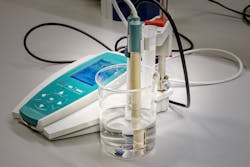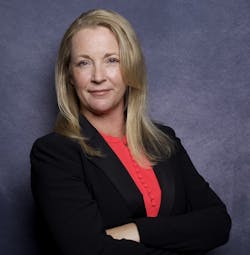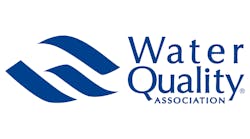Recently, CONTRACTOR caught up with Amanda Moore, President, Water Quality Association (WQA), to talk about the organization and its direction. WQA represents more than 2,500 member companies around the world and serves as an educator of water treatment professionals, a certifier of water treatment products and a public information resource.
CONTRACTOR: What are some of the major WQA initiatives moving forward?
CONTRACTOR: Was there anything learned from the pandemic that helped drive these initiatives?
Moore: We learned that our members and consumers are eager for information, tools and resources that will help keep their water safer and healthier. We learned to better use video technologies such as Zoom for discussions, education and other outreach—and, conversely, we learned that our members really value and benefit from coming together in person to strategize and learn from each other. I think we’ve listened to our members and reached a good balance on that one.
CONTRACTOR: Piggybacking off questions the previous questions, what are some of the industry's major concerns as it pertains to water quality, efficiency and water treatment?
Moore: People who get their water from private wells are responsible for their own water testing and treatment, and they need more resources to ensure water is tested regularly and treated appropriately.
Small community water systems must meet the requirements of the Safe Water Drinking Act but often are strapped for resources. Water Quality Research Foundation studies have found that most of the time, it is more economical, environmentally sensitive and quicker for these communities to provide point-of-use (POU) or point-of-entry (POE) treatment systems to their customers than to make improvements at the central treatment plant.
In many cases, POU/POE treatment can provide quick, efficient treatment for communities experiencing lead or other contaminants, and our members stand ready to share their expertise.
CONTRACTOR: How has WQA's advocacy, both at a federal and local level, helped provide the public with greater access to water?
Moore: A WQA Task Force developed a proposal and worked with a senator’s staff to draft the Healthy Drinking Water Affordability Act, commonly known as the Healthy H2O Act. Identical bills have been introduced in both the U.S. House and the Senate and have attracted bipartisan sponsorship. The bill would offer federal grants for water quality testing and certified treatment technology in rural and underserved communities where residents rely on private wells.
I am thrilled to report that on July 18, WQA CEO Pauli Undesser testified before the Senate Agriculture Committee’s Subcommittee on Rural Development and Energy, discussing challenges faced by rural residents relying on private wells or small community water systems, encouraging the committee to consider POU/POE technologies as a key tool to improve water quality in rural communities, and urging the committee to include the Healthy H2O Act in the 2023 Farm Bill. She also offered her services as an expert on drinking water quality and the use of POU/POE technologies.
CONTRACTOR: I know education is a vital part of WQA. How does it get its “knowledge” out to the industry?
Moore: We offer both technical and business operations education through webinars, our Water Treatment Learning Center and our annual Convention & Exposition. We also operate an online Knowledge Base, which offers instant, updated technical information 24/7 to WQA members. Personally, I use the Knowledge Base at least once a week.
WQA offers technical fact sheets, white papers and a wealth of resources through our website, and we provide research reports through our research arm, the Water Quality Research Foundation. We sponsor a strong mentorship program where members can support each other. The mentorship program is one of my favorite developments at WQA over the last five years.
We put a premium on professional certification, a voluntary credentialing process that demonstrates a commitment to high professional standards, growing expertise and improving customer service. Courses are offered in on-demand modules through our website or through our latest innovation, live instructor-led training sessions taught via Zoom. The enrollment in the instructor-led training sessions has been phenomenal. Continuing education is offered on our website, in webinars or in live Convention education sessions.
CONTRACTOR: Your father also served as WQA president. What did you learn from him? Any advice you can share with us?
The decade was different but the challenges for our industry have remained fairly consistent over time. One of the most important tools to have is the ability to look back at history and learn from it. However, we can’t stay in the past. If we don’t want to repeat history, we need to take that vision, grow and evolve. One of the things I respect most about A. O. Smith is its recognition of history and the never-ending desire to continue to improve as it pertains to both professionalism in the water quality industry and with new technology developments.
CONTRACTOR: Do you consider yourself a mentor for those young women starting their careers (hopefully into our industry).
Moore: I do enjoy being a mentor. I also hope to be a role model as it pertains to women serving in leadership roles in the water treatment industry. I have always felt that women have the potential to better understand and represent the value of quality safe drinking water than anyone in the industry. As a mother, the most important thing to me is giving my daughters the very best life. I am thrilled to work in an industry with a direct line to providing that better life. I am the second female President of the Water Quality Association, and I guarantee you that I will not be the last. We have a lot of young fantastic women in this industry.
CONTRACTOR: I heard you on a recent podcast saying that ethics plays a big role in water quality. Please explain.
Moore: This industry has transformed in the last decade. Due to our technologies and capabilities, we are now addressing health issues directly and installing products that are solutions to known health contaminants. Today’s consumer is educated and some know what questions to ask before ever contacting a water treatment professional. If they are not, they want to become educated. We have a responsibility to discuss technologies based on fact, science and when available, certified performance. When we install a water treatment device, we need to do it properly and then provide ongoing maintenance as needed on the device so that it can continue to perform as designed. We have the technologies available now to make water healthier and safer. As an industry, if we are going to say that, then we absolutely must ensure we are doing it.
CONTRACTOR: Finally, talk about the importance of collaboration with other entities (assocs., mfrs., etc.) to reach common goals?
Moore: One recent example of this collaboration was when WQA and Texas Water Quality Association members worked together to convince the Houston City Council (the nation’s fourth-largest city) to remove a longstanding code provision requiring a redundant double-check valve assembly for residential water softeners. My favorite word is collaboration and when groups can band together to reach a common goal that is beneficial to the end user, I am all for it.
Forever chemicals have changed the face of the industry. The EPA’s recent declaration of intent to set a maximum contaminant level has brought the WQA together with other water-based associations like the National Ground Water Association. This year, WQA leaders attended an event in Washington DC to help educate representatives on capabilities in our respective spaces and the benefits of working together. The answer to forever chemicals does not lie in a single sector. Success will be the result of collaboration.
As Henry Ford once said, "If everyone is moving forward together, then success takes care of itself."


